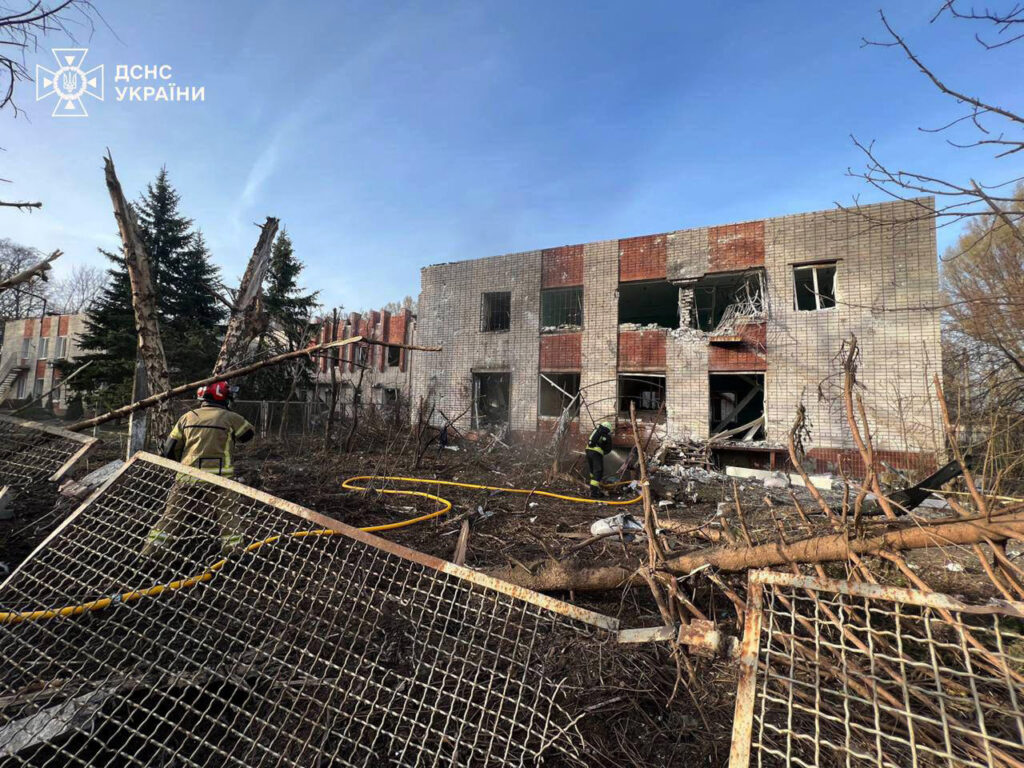
- ARAB NEWS
- 15 Jun 2025

TOKYO: With Russia’s invasion of Ukraine in its third year showing no signs of immediate resolution, the Japanese government has reaffirmed its commitment to mobilizing both public and private resources to support Ukraine’s recovery and reconstruction efforts.
During the Japan-Ukraine Conference for Promotion of Economic Growth and Reconstruction, held in Tokyo on Feb. 19, Japan took a significant role in the adoption of documents aimed at fostering cooperation in agriculture and infrastructure restoration.
In the future, Tokyo plans to promote nonmilitary support, focusing on private investment. By bolstering assistance to Ukraine, Japan also aims to send a message to China, cautioning against unilateral attempts to change the status quo in the South China Sea and East China Sea.
The reconstruction conference was attended not only by Japanese Prime Minister KISHIDA Fumio and his Ukrainian counterpart, Denys Shmyhal, but also by about 100 business leaders from each country.
In his keynote speech, Kishida said: “The war in Ukraine continues at this very moment, and the situation remains challenging. Promoting economic reconstruction, however, represents not only an investment in Ukraine’s future but also an investment in Japan and the entire world.”
“Our goal is to provide robust support to Ukraine through collaborative efforts between the public and private sectors,” he added.
According to a joint communique adopted at the conference, Kishida reaffirmed Japan’s commitment to “providing the necessary long-term assistance to ensure the stability of Ukraine’s economy, with the aim of achieving comprehensive economic development from the primary to tertiary sectors in Ukraine.”
The communique also noted that Kishida expressed “Japan’s continued support in all phases of reconstruction starting from the initial emergency recovery assistance phase,” such as land mine removal and debris clearance, “to economic reconstruction and industrial enhancement.” The second phase covers development of agriculture, innovative manufacturing, including biotechnology, as well as digital and information technologies, it said.
Furthermore, the public and private sectors of both countries exchanged a total of 56 documents on cooperation, including a newly established tax treaty. The Japanese government also announced plans to provide 15.8 billion yen in grant-in-aid, including the provision of mine-sweeping equipment.
In an effort to stimulate private-sector investment, Japan’s Foreign Ministry has relaxed certain travel restrictions to Ukraine in conjunction with the reconstruction conference. Specifically, the ministry has permitted personnel from Japanese companies and organizations to travel to the Ukrainian capital of Kyiv on the condition that they submit safety plans in advance, although it maintained the highest-level travel advisory for the whole of Ukraine on its four-tier scale, urging the public to “evacuate and avoid all travel.”
Since the start of Russia’s invasion, Kishida has consistently emphasized the notion that “Ukraine today may be East Asia tomorrow.” The Japanese government has announced a total assistance package exceeding 10 billion dollars.
On Feb. 24, marking the second anniversary of the aggression, the leaders of the Group of Seven major nations convened a video conference and reaffirmed their pledge to continue support for Ukraine.
“Security in both Europe and the Indo-Pacific region are interconnected. I urge (the G-7 nations) to continue their dialogue on the Indo-Pacific,” Kishida said during the meeting, suggesting the need to remain attentive to developments involving China.
Japan’s dedication to aiding Ukraine underscores a sense of urgency rooted in the belief that condoning Russia’s unilateral actions could embolden China to assert further hegemonic control in the South China Sea and East China Sea.
“Helping Russia indirectly helps China. Therefore, we can’t allow a letup in our assistance to Ukraine,” a Japanese government official said.
With the relaxation of travel restrictions, Japanese nationals engaged in reconstruction efforts are expected to visit Ukraine. In Kyiv, however, ongoing Russian missile attacks and other hostile actions continue to inflict heavy casualties. Ensuring the safety of Japanese nationals in such volatile conditions is seen posing a significant challenge for Japan.
JIJI Press